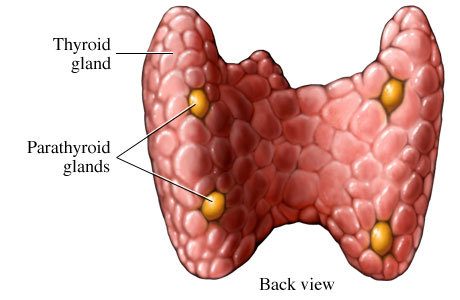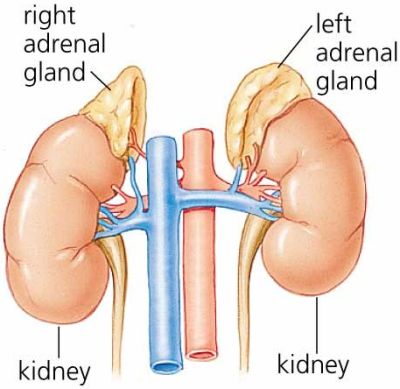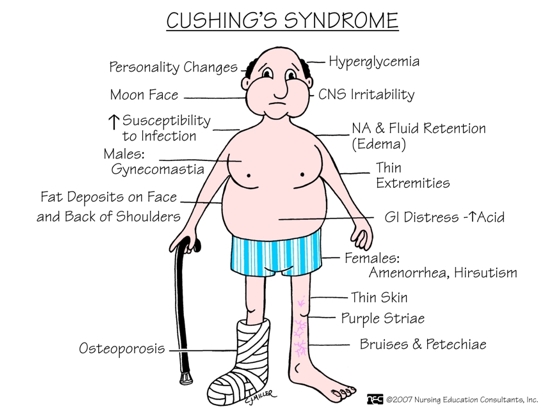
http://www.pauerhome.com/ryan/endocrine_system/pictures/parathyroid_gland_diagram_1.jpg
Hyperparathyroidism
Primary cause are parathyroid tumors (adenoma) and can lead to hypercalcemia (calcium in blood stream)
- Signs and symptoms include
- GI disturbance
- increased urination and thirst
- arthritis
- osteomalacia-bone softening
- proximal muscle weakness
- decreased mental function
Hypoparathyroidism
Insufficient calcium effects multiple cellular functions: muscle contraction, bone growth, and blood coagulation. Symptoms include bony deformity in digits, cardiac dysrhythmia, infertility. In severe cases it can lead to seizures, tetany (maximal contraction without relaxation), and death
Addison's Disease

http://www.pyroenergen.com/articles10/images/adrenal-gland.jpg
Primary adrenal gland dysfunction, resulting in decreased cortisol production It may also result in decreased aldosterone.
Hydrocortisone is the principal glucocorticoid produced by the adrenal and is essential in times of stress. Reduced cortisol hormone levels results in decreased cardiac output and decreased vascular tone (difficult for blood vessels to constrict).
Signs and Symptoms
Weight loss, hypotension, weakness, fatigue, skin changes
Cushing's Syndrome
Adrenal gland dysfunction, resulting in increased cortisol production.Some common observational and clinical findings include:

Signs and symptoms
Excessive cortisol can affect body structures and functions at rest and during exertion. Examples include:
- increased HR, increased respiration rate, severe HA, visual changes, cold clammy skin, excessive sweating

